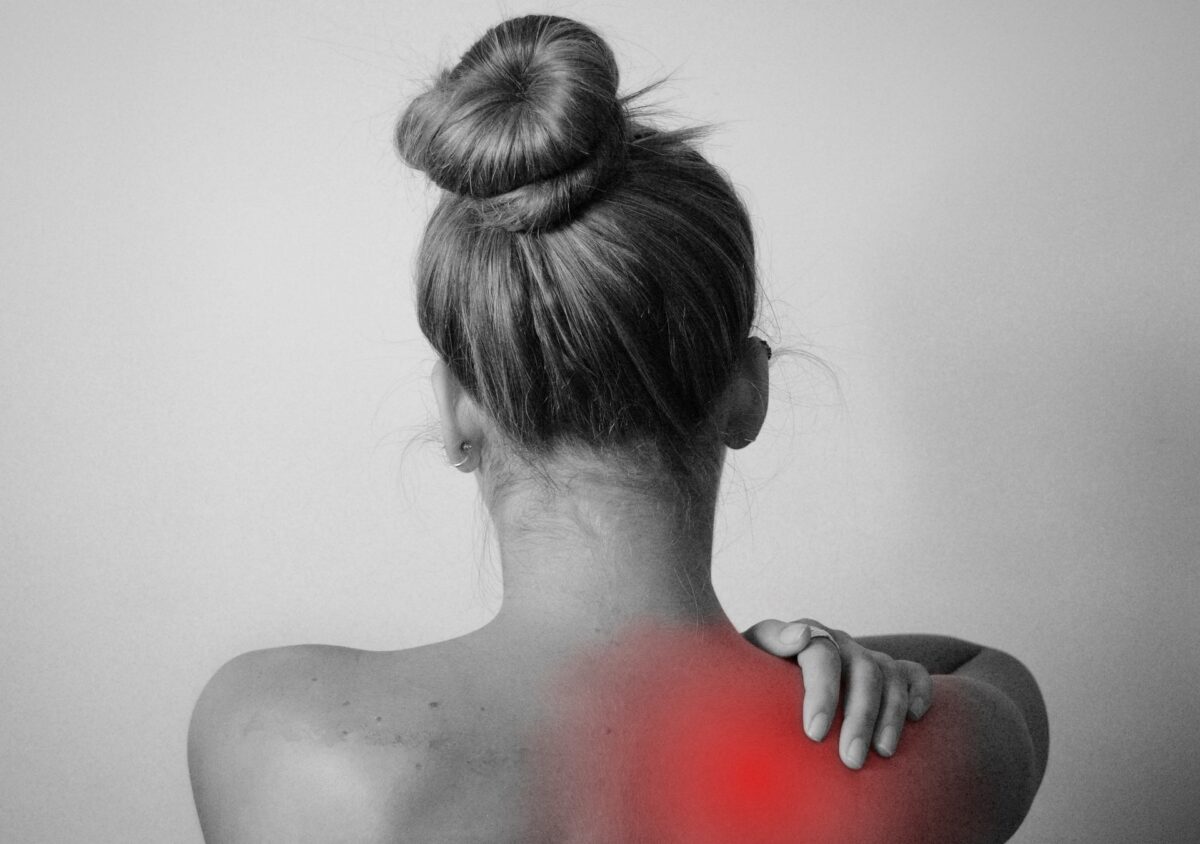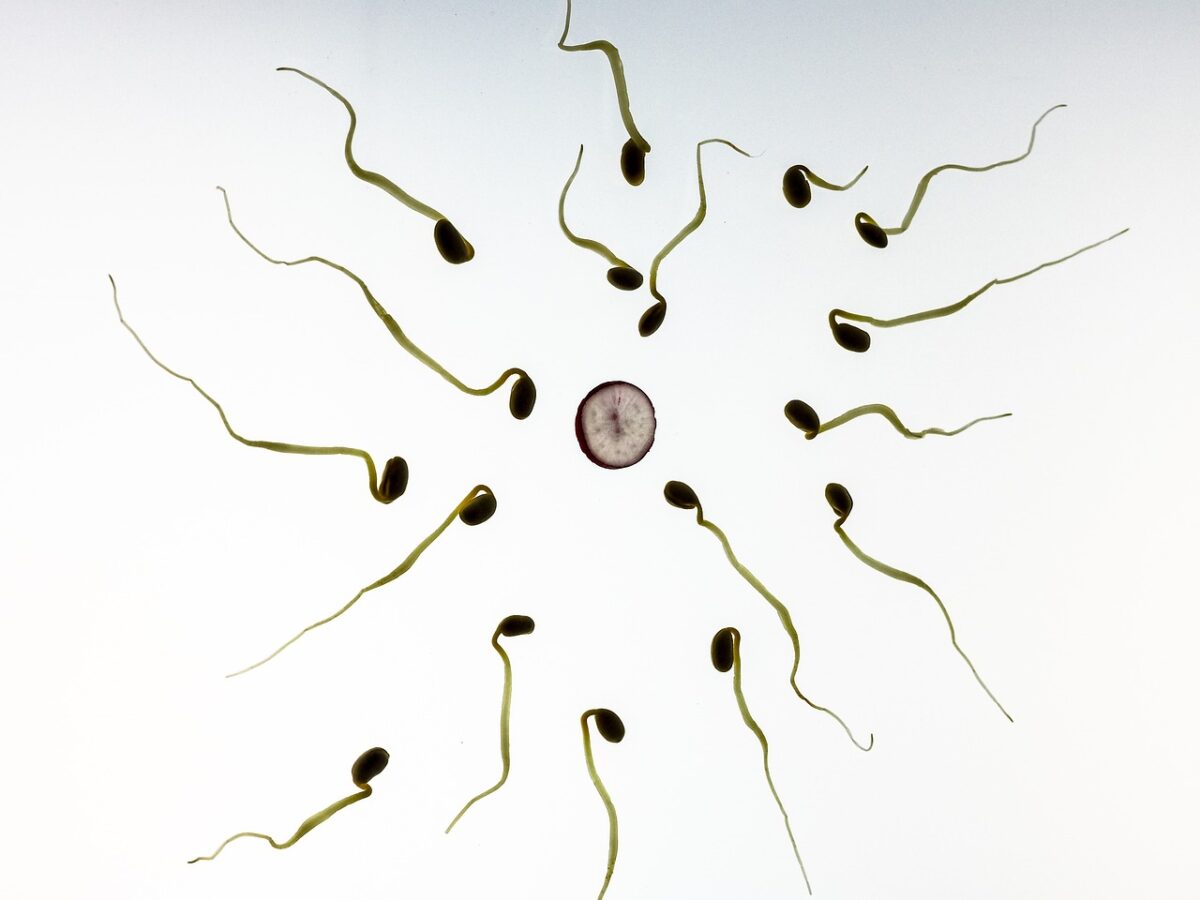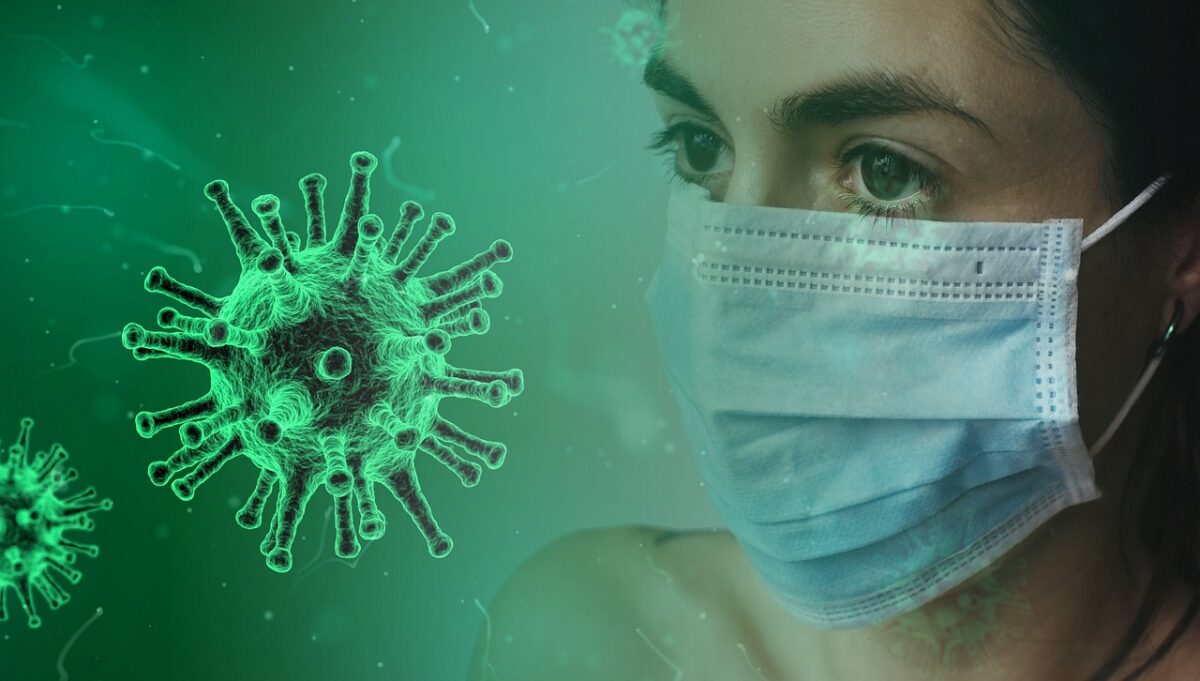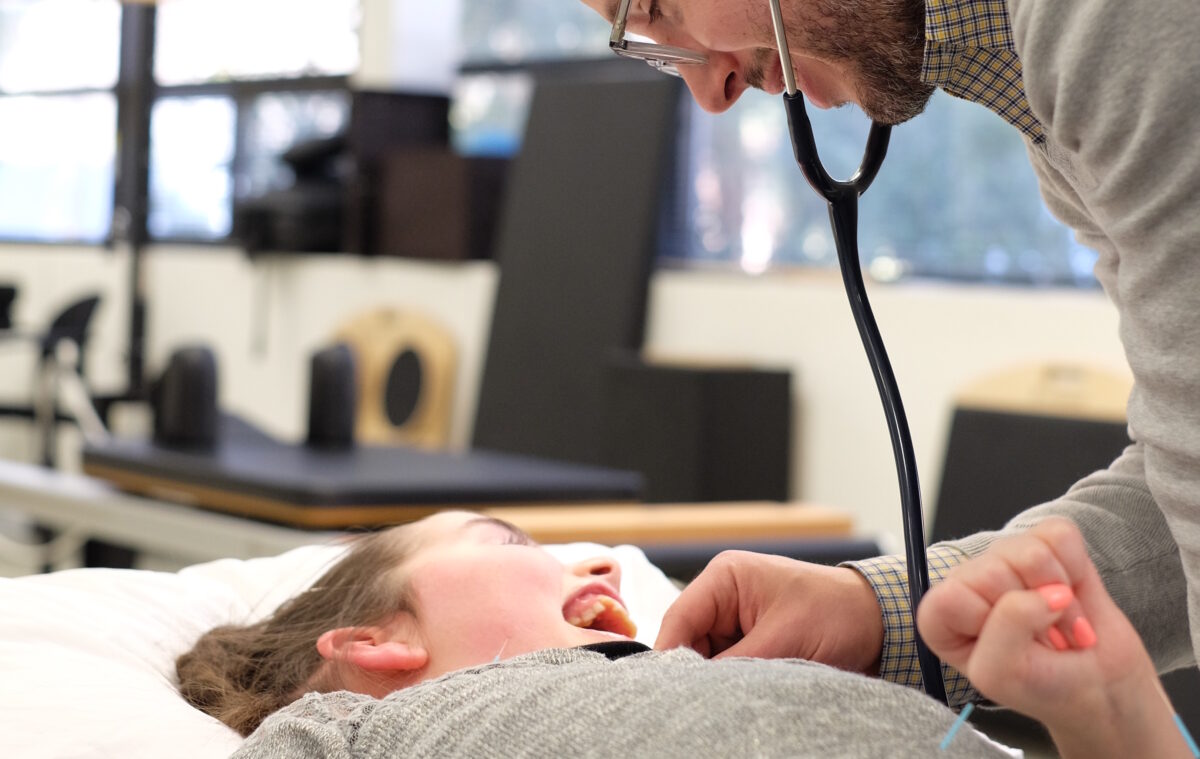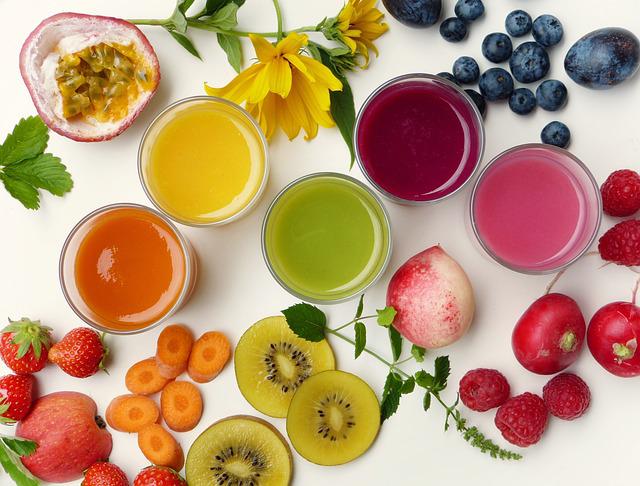If you suffer from fibromyalgia, you know that it can be a debilitating condition that causes fatigue, pain, insomnia, gastrointestinal issues and brain fog. There is no one-size-fits-all solution for fibromyalgia, but there are many natural treatments that can help lessen your symptoms. Here are 10 natural ways to treat fibromyalgia:
Rest and relaxation:
Getting enough rest is crucial for people with fibromyalgia. Taking breaks during the day and getting a good night’s sleep can help reduce fatigue and pain.
A study published in the journal Arthritis Care & Research found that people with fibromyalgia who got more than 7 hours of sleep a night reported less pain and fatigue than those who got fewer hours of sleep. Furthermore, a study published in the journal PLoS One found that people with fibromyalgia who participated in a mindfulness-based stress reduction program had reduced levels of fatigue and pain. This suggests that relaxation techniques such as yoga or meditation may help improve sleep quality and reduce fatigue and pain in people with fibromyalgia.
Exercise:
Although it may seem counterintuitive, exercise is actually one of the best things you can do for fibromyalgia. There is significant evidence to support exercise for fibromyalgia.
One study showed that a 12-week program of aerobic and resistance training improved pain, fatigue, and sleep quality in women with fibromyalgia. A review of 16 studies found that exercise was associated with significantly reduced pain intensity and improved physical function in people with fibromyalgia.
Another study showed that aquatic exercise was beneficial for reducing pain, fatigue, and improving mental health in people with fibromyalgia. Walking appears to be the most beneficial form of exercise for people with fibromyalgia, but any type of exercise that is gentle and can be sustained for a moderate amount of time is likely to be helpful. It is important to start slowly and build up gradually, listening to your body to see how much you can handle. Taking rest days when needed is also important.
Diet:
Eating a healthy diet is important for everyone, but it’s especially important for people with fibromyalgia. Some foods that are beneficial for people with fibromyalgia include omega-3 fatty acids, magnesium-rich foods, and probiotic-rich foods. One thing to avoid is trigger foods that can make symptoms worse. Common trigger foods include caffeine, alcohol, processed food, and sugar.
Supplements:
Clinical trials have shown that omega-3 supplements can be helpful for people with fibromyalgia. One study found that omega-3 supplements improved pain, fatigue, and quality of life in participants with fibromyalgia. Another study showed that omega-3 supplements reduced tenderness in the muscles of people with fibromyalgia.
Magnesium supplements have also been shown to be helpful for people with fibromyalgia. One study found that magnesium supplements improved pain and tenderness in the muscles of participants with fibromyalgia. Another study showed that magnesium supplements improved fatigue and sleep quality in participants with fibromyalgia.
Vitamin D supplements have also been shown to be helpful for people with fibromyalgia. One study found that vitamin D supplements improved pain and fatigue in participants with fibromyalgia. Another study showed that vitamin D supplements improved quality of life in participants with fibromyalgia.
Finally, turmeric supplements have been shown to be helpful for people with fibromyalgia. One study found that turmeric supplements improved pain, fatigue, and depression symptoms in participants with fibromyalgia. Be sure to talk to your doctor before starting any new supplement regimen.
Acupuncture:
Acupuncture is a traditional Chinese medicine technique that involves inserting thin needles into the skin at specific points on the body. Acupuncture has been shown to be an effective treatment for pain, fatigue, and other symptoms associated with fibromyalgia in a number of clinical trials. For example, a trial published in the journal Rheumatology International in 2012 found that acupuncture was more effective than sham acupuncture in reducing pain and fatigue in patients with fibromyalgia.
Additionally, a trial published in the journal Pain Medicine in 2013 found that acupuncture was more effective than sham acupuncture in reducing pain severity and improving function in patients with fibromyalgia. These and other clinical trials provide strong evidence that acupuncture is an effective treatment for fibromyalgia.
Massage:
Massage therapy can help relieve pain by improving circulation and relaxing tense muscles. It can also help reduce stress and promote better sleep.
Research has shown that massage therapy can be an effective treatment for pain relief in people with fibromyalgia. A study published in the journal Pain Medicine in 2016 found that massage therapy was associated with a significant reduction in pain intensity and improvement in fatigue and sleep quality in people with fibromyalgia.
Another study published in the journal BMC Complementary and Alternative Medicine in 2017 found that massage therapy was associated with a reduction in pain, anxiety, and depression symptoms in people with fibromyalgia. These findings suggest that massage therapy may be helpful for managing the symptoms of fibromyalgia.
Cannabis:
Cannabis has been shown to be an effective treatment for fibromyalgia symptoms. A 2016 study published in the Journal of Clinical Rheumatology found that cannabis was more effective than conventional therapies in treating pain, fatigue, and sleep disturbances in people with fibromyalgia. The study participants who used cannabis reported significant improvements in all measures of fibromyalgia severity, including pain intensity, fatigue, and cognitive function.
A 2017 study published in the journal Frontiers in Pharmacology found that cannabis was associated with significant reductions in pain and fatigue levels, as well as improved sleep quality. The study participants who used cannabis also reported significant improvements in quality of life.
Based on the evidence, it appears that cannabis may be an effective treatment for fibromyalgia symptoms. Cannabis is safe and easy to use, and it may provide significant relief for people who suffer from this debilitating condition.
Aromatherapy:
Aromatherapy has been shown to be beneficial for people with fibromyalgia. A study published in the journal Pain Management Nursing found that aromatherapy with lavender oil improved pain, fatigue, and sleep quality in people with fibromyalgia.
Another study published in the Journal of Alternative and Complementary Medicine found that aromatherapy with lemon balm oil improved pain, anxiety, and quality of life in people with fibromyalgia.
A study published in the International Journal of Neuroscience found that aromatherapy with bergamot oil improved pain and tenderness in people with fibromyalgia.
A study published in BMC Complementary and Alternative Medicine found that aromatherapy with chamomile oil improved anxiety and depression symptoms in people with fibromyalgia.
Laser therapy:
Laser therapy is a beneficial treatment for Fibromyalgia. It increases circulation, which helps to reduce pain and promote healing. Additionally, laser therapy is a non-invasive treatment that is relatively painless.
A study published in the “Journal of Alternative and Complementary Medicine” in 2009 found that laser therapy was able to improve pain, fatigue, and function in people with Fibromyalgia.
Additionally, a study published in “PLoS One” in 2013 found that laser therapy was able to reduce pain and improve quality of life in people with Fibromyalgia. These studies provide evidence that laser therapy may be an effective treatment for Fibromyalgia.
Intravenous vitamins and minerals:
One potential treatment for fibromyalgia is intravenous vitamin and mineral infusion. This treatment bypasses digestion and allows the vitamins and minerals to be directly absorbed into the bloodstream. The use of intravenous vitamin and mineral infusion for the treatment of fibromyalgia has been supported by a number of clinical trials.
A randomized, controlled trial published in 2011 found that the treatment was effective in reducing pain and fatigue in people with fibromyalgia. A study published in 2012 found that the infusion was associated with a significant improvement in quality of life and sleep quality.
Another study published in 2014 found that the infusion was associated with a reduction in tender points and improved self-reported pain scores. These studies provide strong evidence that intravenous vitamin and mineral infusion is an effective treatment for fibromyalgia.
Conclusion:
If you are looking for natural ways to treat Fibromyalgia, there are many options available. Some of these include: rest and relaxation techniques, exercise, diet, supplements, acupuncture, massage, cannabis, laser therapy and intravenous vitamins and minerals. It is important to speak to your naturopathic doctor about which natural therapies might be best for you. With so many options available, there is sure to be a treatment that can help improve your symptoms and quality of life.
If you and your partner are trying to conceive, you may be looking for ways to increase your sperm count. Although there are medical treatments available, there are also some natural methods you can try. Here are 10 ways to increase sperm count naturally.
1. Eat foods rich in antioxidants
Antioxidants are nutrients that help protect your cells from damage. They’re found in many foods, including fruits, vegetables, nuts, and seeds. Some studies have found that certain antioxidants may improve sperm count and quality. One study found that men who took 2,000 IU of vitamin E daily for 84 days had significantly higher sperm counts than those who took a placebo.
Vitamin C is another antioxidant that’s been studied for its effects on sperm count. One small study found that men who took 1,000 mg of vitamin C daily for 2 weeks had higher sperm counts than those who didn’t take the supplement.
2. Get enough vitamin D
Vitamin D is important for many aspects of health, including fertility. A vitamin D deficiency has been linked with low testosterone levels and poor semen quality. One study found that men with vitamin D deficiencies had lower levels of testosterone and poorer semen quality than those who had sufficient levels of vitamin D. Another study found that taking a vitamin D supplement improved semen quality in men with vitamin D deficiencies. If you think you might be deficient in vitamin D, talk to your doctor about being tested and taking a supplement if necessary.
3. Eat more fatty fish
Fatty fish such as salmon, mackerel, and herring are good sources of omega-3 fatty acids which are important for many aspects of health, including fertility. Omega-3 fatty acids have been shown to improve semen quality in men with fertility problems. One study found that taking an omega-3 supplement improved sperm motility and morphology in men with low sperm counts . Another study found similar results , but only in men with normal or slightly low sperm counts.
If you don’t eat fish, you can get omega-3s from flaxseeds or take an omega-3 supplement. Just be sure to talk to your doctor before taking any supplements since they can interact with certain medications.
4. Get enough zinc
Zinc is an essential mineral that’s important for many aspects of health, including fertility . It’s needed for the production of testosterone and other hormones involved in reproduction. A zinc deficiency has been linked with low testosterone levels, poor semen quality, and increased risks of infertility. One study found that taking a zinc supplement improved fertility in men with zinc deficiencies. Another study showed that taking a zinc supplement increased testosterone levels and improved semen quality in infertile men. Good food sources of zinc include oysters, beef, lamb, pumpkin seeds, and dark chocolate.
5. Limit your alcohol intake
Alcohol consumption has been linked with decreased testosterone levels, poor semen quality, and increased risks of infertility. One study showed that moderate alcohol intake (up to three drinks per week) was associated with lower risks of infertility but heavy drinking (more than three drinks per week) was associated with higher risks of infertility. Another study showed that alcohol consumption was associated with lower semen quality but did not affect testosterone levels or the percentage of abnormal sperm. Therefore, it’s best to limit your alcohol intake if you’re trying to conceive or talk to your doctor about quitting altogether if you’re struggling with fertility issues.
6. Get regular exercise
Exercise helps to improve blood circulation, which in turn can improve your sperm count. A study published in the British Journal of Sports Medicine found that men who exercised regularly had higher sperm counts than those who didn’t exercise at all.
7. Reduce stress levels
Stress has been shown to have a negative impact on male fertility. In a study by Shebl et al. (2015), it was found that men who were under stress had a lower sperm count than those who were not. This is likely due to the hormonal changes that occur with stress. Cortisol, which is released in response to stress, can interfere with testosterone production and negatively affect sperm count.
There are many different ways to reduce stress, such as yoga, meditation, and aromatherapy. These methods can help to restore balance to the body and reduce the negative effects of stress on hormones.
8. Quit smoking
Smoking has been linked with a number of health problems, including DNA damage and decreased sperm count. A study by Lai et al. (2013) found that smoking causes significant DNA damage in the sperm of smokers, which can lead to decreased fertility and increased rates of miscarriage. Another study by Bohlin et al. (2010) found that smoking can decrease sperm count by up to 34%, and that this decrease in fertility is even more pronounced in men who smoke more than 20 cigarettes per day.
9. Get enough sleep
Sleep is important for all aspects of health, including reproductive health. A lack of sleep can decrease testosterone levels and reduce the quality of your sperm. Aim to get at least 7-8 hours of sleep every night.
10. Herbal therapy
Some traditional herbal medicines have been shown to have a positive effect on sperm count and quality. For instance Ashwagandha is an herb that has been traditionally used in ayurvedic medicine to treat a variety of issues ranging from anxiety and stress to infertility. There is some evidence that ashwagandha can help increase sperm count and improve sperm quality. One study found that men who took ashwagandha for 90 days had a 17% increase in sperm count and a 35% increase in sperm quality. Another study showed that ashwagandha improved the motility of sperm and increased the percentage of normal sperm cells. Ashwagandha is available in capsule or powder form and can be taken daily.
Conclusion
If you and your partner are trying to conceive, consider making some lifestyle changes. Natural male fertility strategies like the ones we’ve talked about in this blog post can make a big difference when it comes to boosting sperm count. Talk to your naturopathic doctor about which of these 10 methods might work best for you and start making some changes today. By taking charge of your health, you increase your chances of achieving a successful pregnancy.
Respiratory Syncytial Virus, or RSV, is a common respiratory virus that affects infants and young children. Although RSV is usually mild, it can sometimes lead to more serious health problems, such as pneumonia. There is no specific cure for RSV, but there are several natural treatments that can help relieve symptoms and speed up recovery. Here are 7 natural treatments for RSV:
1. Honey
Honey has long been used as a natural remedy for coughs and other respiratory infections. A 2012 study found that honey was more effective than dextromethorphan, a common cough suppressant, in relieving cough symptoms. Honey can also help thin mucus and make it easier to cough up. For added effect choose Manuka honey. Manuka honey has added antibacterial, antiviral and anti-inflammatory properties. Give your child 1-2 teaspoons of honey at bedtime or as needed throughout the day. Do not give honey to infants under 12 months old.
2. Steam Inhalation
Steam inhalation is a simple and effective way to relieve congestion and coughing associated with RSV. The steam helps thin mucus and makes it easier to breathe. Fill a bowl with hot water and hold your child’s head over the bowl with a towel over their head to trap the steam. Inhale the steam for 5-10 minutes, 2-4 times per day.
3. Humidifier
Running a humidifier in your child’s room can also help relieve congestion by adding moisture to the air. Just be sure to clean the humidifier regularly to prevent the growth of mold and bacteria.
4. Salt Water Gargle
Gargling with warm salt water can help reduce inflammation and swelling in the throat, which can make it easier to eat and drink. Mix 1 teaspoon of salt in 8 ounces of warm water and have your child gargle for 30 seconds 3-4 times per day. Spit the solution out after gargling. Another good option is a saline nasal spray from you local drug store. These products can be helpful in clearing out mucus and reducing inflammation from the upper respiratory tract.
5. Rest
Getting plenty of rest is crucial for helping your child recover from RSV or any other illness. Make sure your child gets plenty of fluids and take them out only when necessary so they can focus on getting better. If your child is having trouble sleeping due to congestion, an over the counter antihistamine or decongestant can be useful in the short-term. With these products you will have to be careful about age appropriate dosing so talk to your medical or naturopathic doctor first.
6. Diet
A diet rich in fruits and vegetables may help shorten the duration of a viral infection. Vitamin C is a nutrient that is known to boost the immune system, and foods like oranges, grapefruits, and broccoli are high in this nutrient. Additionally, zinc is another mineral that is important for immunity and can be found in foods like seafood, beef, and pumpkin seeds. It is important to stay hydrated during a viral infection, so drink plenty of fluids like water, broth, and herbal teas.
7. Immune supporting supplements
There are many safe and effective immune supporting supplements for kids that can help shorten the duration of a viral infection. Some of the most popular and well-researched supplements include vitamin C, zinc, vitamin D, elderberry syrup and probiotics.
Vitamin C is a powerful antioxidant that helps support the immune system. Zinc is also important for immune health, and probiotics are beneficial bacteria that help keep the gut healthy. For more information on these supplements and more check out my post on “5 natural ways to combat cold and flu season for kids”. All of these supplements can be safely given to kids to help them fight off a virus and recover more quickly. Consult with your naturopathic doctor for appropriate dosing.
Conclusion:
RSV is a common virus that affects infants and young children, but there are several natural treatments that can help relieve symptoms and speed up recovery time. Some home remedies for RSV include honey, steam inhalation, salt water gargles, humidifiers, rest, diet and natural supplements. If you think your child may have RSV, be sure to contact their medical or naturopathic doctor right away so they can receive proper treatment.
As a mom or dad, you want what’s best for your children. You want them to be happy and healthy, and you want to do everything you can to help them reach their full potential. When it comes to their health, naturopathic care is one of the best things you can do for your kids. Here are 10 reasons why:
1. Holistic Care
Naturopathic care focuses on the whole child, not just the symptoms of whatever condition they happen to be experiencing at the moment. This means that treatment is tailored to the individual child, taking into account all aspects of their health, both physical and emotional.
2. Prevention
Naturopathic care is all about preventing illness before it has a chance to take hold. By teaching kids healthy habits and helping them to develop a strong foundation of wellness, naturopathic doctors can help keep your kid(s) healthy throughout their lives.
3. Natural Medicines
Naturopathic care relies heavily on natural therapies and treatments rather than harsh chemicals or drugs. This is important because it means that there are generally fewer side effects and risks involved with naturopathic care than there are with conventional medical treatments.
4. Safety
Because naturopathic care is so gentle and natural, it’s safe for even very young children. In fact, many parents choose naturopathic care for their babies and toddlers precisely because it is so safe and gentle.
5. Efficacy
Don’t let the gentle nature of naturopathic care fool you—it is highly effective in treating a wide variety of conditions in children of all ages. From colds and flus to chronic conditions like allergies and asthma, naturopathic care can help your child feel better and improve their overall health.
6. Affordability
Because naturopathic care is covered by most insurance plans, it is often more affordable than other forms of medical treatment. This makes it a great option for families on a budget who still want to give their children the best possible care.
7. Convenience
It’s convenient. Naturopathic doctors often offer convenient office hours and locations, making it easy for busy families to get the care they need without having to miss work or school unnecessarily. Additionally, many naturopathic clinics, include ours, offer online scheduling and telemedicine options. This makes access to care even easier!
8. Evidence based
Naturopathic care is based on solid scientific evidence—not just anecdotal evidence or old wives’ tales! This means that you can be confident that the treatments your child receives are backed by research and are proven to be effective in treating a variety of conditions.
9. Education
One of the best things about naturopathic care is that it helps kids learn healthy habits that will last a lifetime. By teaching them how to eat right, exercise regularly, manage stress effectively, and more, naturopathic doctors set kids up for success both now and in the future.
10. Primary Care
In some cases, early intervention with naturopathic care can literally save a child’s life. For example, if your child has a genetic predisposition for heart disease or cancer, starting them on a program of naturopathic prevention could help them avoid ever developing the disease in the first place. Additionally, naturopathic doctors are primary care physicians who can run lab tests and make diagnosis similarly to a pediatrician.
Conclusion
Naturopathic care offers countless benefits for children of all ages. If you’re looking for an alternative to conventional medicine or just want to give your child the best possible chance at good health throughout their life, consider making an appointment with a naturopathic doctor today!
Book a free 15 minute introductory consult
Any good rock climber knows that in order to perform at your best, you need to take care of your body. That means eating a nutritious diet, appropriate training, sleeping well and staying hydrated. But it can also mean supplementing your diet with the right things to ensure that your body has everything it needs to climb to new heights. Here are 10 of the best supplements for rock climbing.
CBD
CBD, or cannabidiol, is a compound found in the cannabis plant. Unlike its more famous cousin THC, CBD does not have any psychoactive effects. Instead, it has been shown to offer a variety of health benefits, including reducing anxiety and pain. CBD is also being explored as a treatment for several conditions, including epilepsy and Alzheimer’s disease. CBD oil can be taken orally or applied topically, making it a versatile addition to any medicine cabinet.
For athletes, CBD oil has become an increasingly popular way to manage pain and inflammation. CBD is thought to work by interacting with the body’s endocannabinoid system, which plays a role in regulating pain and inflammation. In one study, rock climbers who took CBD before their climb reported reduced pain and inflammation afterwards. CBD is also being explored as a potential treatment for Delayed Onset Muscle Soreness (DOMS), a type of muscle soreness that can occur after exercise. While more research is needed, CBD oil shows promise as a safe and effective way to manage pain and inflammation for athletes of all levels.
Dose: 60mg after training has shown benefit in muscle recovery
Theanine
Theanine is an amino acid that can be found in tea leaves. It is known to have a calming effect on the mind, and it has been shown to improve focus and concentration. Theanine has also been shown to reduce anxiety levels. For these reasons, theanine has become a popular supplement among rock climbers. While theanine can help to improve focus and cognitive function, it is not a miracle drug. Theanine will not make you a better rock climber overnight. However, it can help to improve your mental state while climbing, making it easier to maintain focus and avoid getting overwhelmed by anxiety. If you are looking for an edge while climbing, theanine may be worth considering.
Dose: 100mg has shown improvements in cognitive function.
Protein
Climbing is a strenuous activity that can lead to muscle soreness and fatigue. Adding a protein powder supplement to your diet can help your muscles recover more quickly so that you can get back on the wall sooner. Protein powder is also helpful in preventing injuries since it helps to repair and build muscle tissue. For optimal effects, it is best to take a protein supplement within one hour after climbing.
Dose: 1.2-1.5 grams/kg or 30-33 grams when combined with athletic training.
Iron
Climbing takes a lot of energy, so it’s important to make sure you’re getting enough iron. Iron helps carry oxygen to your cells, which gives you the energy you need to power through a tough climb. If you’re not getting enough iron, you might start to feel fatigued more easily. The best way to get iron is through food sources like red meat, dark leafy greens, and beans. However, if you’re not getting enough from your diet, you might want to consider taking an iron supplement. Just be sure to talk to your doctor first, as too much iron can be harmful.
Dose: Depends on current iron levels. Blood testing may be required. Consult with your doctor or naturopath.
Magnesium
Magnesium is a mineral that is critical for human health. It is involved in over 300 biochemical reactions in the body, including the metabolism of energy, the regulation of blood sugar, and the formation of bones and teeth. Magnesium is also essential for muscle function, and it helps to relieve muscle cramps. For athletes and people who are physically active, magnesium is especially important. This is because Magnesium helps to maintain electrolyte balance and to reduce exercise-induced inflammation.
Rock climbers can benefit from taking magnesium supplements, as this can help to improve their performance and recovery from climbs. Magnesium can also help to prevent injuries by reducing the risk of cramping. For climbers who are looking to improve their results, magnesium may be a valuable addition to their diet.
Dose: Up to 350mg is generally tolerated well.
Creatine
Creatine is a naturally occurring compound in the body that helps to supply energy to cells. It is popular among climbers because it has been shown to improve power and strength output. This can be helpful when you are trying to send a hard route or when you need to pull yourself up a steep wall. Creatine is also one of the most studied supplements on the market, so you can be confident in its safety and effectiveness.
Dose: 20 grams for 5-7 days has shown improvement in both aerobic and anaerobic performance
Beta-Alanine
Beta-alanine is another amino acid that is popular among athletes because it has been shown to improve performance. It works by increasing the amount of carnosine in muscle cells, which helps to buffer lactic acid buildup. This can delay fatigue, arm pump and help you climb for longer periods of time without getting as tired. Beta-alanine is also relatively safe and has been well-studied, so you can be confident in its effects.
Dose: 2-6.4 grams for 3-12 weeks demonstrated improvements in exercise capacity and performance.
Collagen
Collagen is a structural protein that helps to give tissues their strength and elasticity. It is found throughout the body, including in the skin, bones, and tendons. Collagen plays an important role in rock climbing, as it helps to maintain the strength and integrity of the climbers’ hands and feet. Collagen also helps to protect against injury, as it acts as a shock absorber and can help to reduce the impact of falls. In addition, collagen aids in the healing process, helping to repair tissue damage caused by climbing. As a result, collagen is an essential component of rock climbing. without it, climbers would be at a higher risk of injury and would have a difficult time recovering from falls. Taking daily amounts of collagen through supplementation can help ensure that your body has all the required building blocks for collagen synthesis.
Dose: 10-20 grams daily has shown increases in performance.
Ginseng
Ginseng is an herb that has been used for centuries in traditional Chinese medicine. Today, ginseng is commonly taken as a dietary supplement, and it is also said to have many benefits for athletes and outdoor enthusiasts. Ginseng is thought to improve stamina and endurance, and some climbers even swear by it as a way to boost their performance on the rock. Ginseng is available in many forms, including capsules, teas, and tinctures. If you’re interested in trying ginseng for yourself, be sure to talk to your doctor first, as it can interact with some medications.
Dose: 200mg up to 3 times daily for 12 weeks has been shown to be safe. Panax Ginseng can raise blood pressure so it is important to consult with your doctor or naturopath prior to supplementation.
Caffeine
Caffeine is a popular supplement among athletes in general because it has been shown to improve alertness, focus, and power output. This can be helpful when you are trying to maintain focus while climbing. Caffeine is also relatively safe, but it is important to not overdo it as too much caffeine can lead to side effects like jitters and anxiety.
Dose: 2-10mg/kg has shown improvements in athletic performance. Up to 400mg per day has been shown to be relatively safe for most individuals.
Conclusion
These are just a few of the many different supplements that can be helpful for rock climbing. If you are looking to improve your performance, then you may want to consider adding some of these supplements to your diet. As always, make sure to consult with a doctor before starting any new supplement regimen.
References
Isenmann E, Veit S, Starke L, Flenker U, Diel P. Effects of Cannabidiol Supplementation on Skeletal Muscle Regeneration after Intensive Resistance Training. Nutrients 2021;13(9):3028
Foxe JJ, et al. Assessing the effects of caffeine and theanine on the maintenance of vigilance during a sustained attention task. Neuropharmacology. 2012;62(7):2320-2327
McAdam JS, McGinnis KD, Beck DT, et al. Effect of Whey Protein Supplementation on Physical Performance and Body Composition in Army Initial Entry Training Soldiers. Nutrients. 2018;10(9)
McNaughton LR, Dalton B, Tarr J. The effects of creatine supplementation on high-intensity exercise performance in elite performers. (abstract) Eur J Appl Physiol Occup Physiol 1998;78:236-40
Hobson RM, Saunders B, Ball G, et al. Effects of ß-alanine supplementation on exercise performance: a meta-analysis. Amino Acids 2012;43:25-37
Jendricke P, Kohl J, Centner C, Gollhofer A, König D. Influence of specific collagen peptides and concurrent training on cardiometabolic parameters and performance indices in women: A randomized controlled trial. Front Nutr. 2020;7:580918.
Sorensen H, Sonne J. A double-masked study of the effects of ginseng on cognitive functions. Curr Ther Res 1996;57:959-68.
Greer F, Friars D, Graham TE. Comparison of caffeine and theophylline ingestion: exercise metabolism and endurance. J Appl Physiol 2000;89:1837-44
Multiple sclerosis is a debilitating neurological disorder that can often leave patients feeling hopeless and alone. But there is hope! In this blog post, we will explore nine natural treatments for multiple sclerosis that have helped my Toronto patients alleviate some of the symptoms associated with the disease.
1. Acupuncture
Acupuncture is a traditional Chinese medicine technique that involves inserting thin needles into the skin at specific points on the body. It is believed that this helps to clear energy blockages and promote balance and healing within the body. There is some evidence to suggest that acupuncture may be effective in treating symptoms of multiple sclerosis, such as fatigue, pain, spasticity, and bladder problems.
2. Herbal Medicine
There are many different herbs that have been traditionally used to treat various ailments, including multiple sclerosis. Some of the most common herbs used for MS include ginger, ginkgo biloba, turmeric, milk thistle, lions mane and green tea. These herbs can be taken in pill form or brewed into a tea. It is important to talk to a Naturopathic Doctor or qualified herbal practitioner before starting any herbal treatment regimen, as some herbs can interact with medications you may be taking for your MS.
3. Dietary Changes
Making some simple dietary changes can also help improve symptoms of MS. One study showed that following a Mediterranean diet—which includes lots of fresh fruits and vegetables, whole grains, fish, and olive oil—may help reduce inflammation and slow the progression of MS. Other helpful dietary changes include avoiding processed foods and food allergies, getting enough vitamin D, and drinking plenty of water.
Food sensitivity testing can help to identify gluten sensitivity and other food sensitivities in people with MS and other autoimmune diseases. The most common type of food sensitivity test is an Elimination Diet, in which potential triggering foods are eliminated from the diet for a period of time and then reintroduced one at a time to see if symptoms occur. However, Elimination Diets can be difficult to stick to and can take months or even years to complete. Another option is an IgG Food Sensitivity Test, which measures levels of immunoglobulin G (IgG) antibodies in the blood.
Antibodies are produced by the immune system in response to perceived threats, such as bacteria or viruses. However, in people with food sensitivities, the immune system overreacts to harmless proteins found in certain foods, producing excessive amounts of IgG antibodies. IgG Food Sensitivity Tests can be helpful in identifying food sensitivities because they can measure levels of IgG antibodies specific to each individual food protein. This allows for a more targeted Elimination Diet and can speed up the diagnosis process. If you think you might have a food sensitivity, you can book an appointment for testing.
4. Exercise
Exercise is important for everyone, but it is especially crucial for those with MS. Regular physical activity can help reduce fatigue, improve mobility and coordination, ease depression and anxiety, promote better sleep, and boost overall fitness and well-being. Even if you are not able to do strenuous exercise due to your symptoms, there are still many low-impact activities you can do to get moving and feeling better.
5. Stress Reduction Techniques
Stress is a well-known trigger for multiple sclerosis (MS) flare-ups. Managing stress is therefore an important part of MS treatment. Stress management techniques such as relaxation therapy and yoga can be helpful, but some patients may also benefit from taking adaptogens. Adaptogens are a class of natural substances that help the body to adapt to stress by reducing the production of stress hormones. They have been used for centuries in traditional Chinese and Indian medicine, and are now gaining popularity as a natural treatment for stress and anxiety. Some common adaptogens include ashwagandha, holy basil, and ginseng. If you are interested in trying adaptogens, talk to your Naturopathic doctor first to discuss whether they are right for you.
6. Vitamin D
Vitamin D is an important nutrient that helps the body absorb calcium. It’s found naturally in very few foods, so most people get it from exposure to sunlight. Vitamin D is also available in supplement form. Some studies suggest that vitamin D may play a role in helping to prevent or treat MS. If you think you might be deficient in vitamin D, book an appointment with us for vitamin D testing or talk to your doctor.
Sometimes supplementation is ineffective or can take too long to bring up severely deficient vitamin D levels. I offer these patients the option of a high potency vitamin D injection that will bring levels up very quickly.
7. Mitochondrial Support
Mitochondrial support using resveratrol, alpha lipoic acid, coenzyme Q10 and NAD boosters is a promising new treatment for patients with multiple sclerosis. Mitochondria are the powerhouses of the cell, and they are responsible for producing energy. In patients with multiple sclerosis, the mitochondria are not working properly, and this can lead to fatigue and other symptoms. Resveratrol, alpha lipoic acid, coenzyme Q10 and NAD boosters help to support the mitochondria and improve their function. In a small study of patients with multiple sclerosis, those who received mitochondrial support had less fatigue and improved quality of life.
8. Hormones
Hormones play an important role in the human body, regulating everything from metabolism and mood to reproduction and energy levels. When hormones are out of balance, it can lead to a host of problems. For patients with multiple sclerosis (MS), hormone imbalances can cause fatigue, weight gain, depression, and loss of libido. Hormone testing can help to identify imbalances and allow for tailored treatment plans that use bio identical hormone replacement therapy to restore balance. By addressing hormone imbalances, patients with MS can improve their quality of life and potentially reduce their risk of disease progression.
9. Cannabinoids
Recently, cannabinoids have emerged as a potential therapy for MS. Cannabinoids are compounds found in the cannabis plant, and they have been shown to have anti-inflammatory and neuroprotective effects. In animal studies, cannabinoids have been shown to reduce inflammation and nerve damage in models of MS. In small clinical trials, cannabinoids have been shown to improve symptom control in patients with MS. These promising results have led to the development of several cannabinoid-based medications for MS. Dr. Shawn Meirovici N.D. is experienced cannabis educator in Toronto, Ontario. Dr. Shawn can help patients decide if cannabis therapy would be a good addition to their treatment plan.
Conclusion:
If you are living with multiple sclerosis (MS), know that you are not alone—there are millions of other people around the world dealing with this disease every day. And while there is no cure for MS at this time, there are many different treatments that can help alleviate some of the symptoms associated with the disease. In this blog post, we explored nine natural treatments for MS—acupuncture , herbal medicine , dietary changes , exercise , stress reduction techniques, vitamin D, mitochondrial support, hormone balancing and cannabinoid therapy. Make an appointment with us or talk to your doctor about which treatments might be right for you.
Intro
According to the National Sleep Foundation, “insomnia is defined as repeated difficulty with sleep initiation, maintenance, consolidation, or quality that occurs despite adequate opportunity and circumstances for rest,” and it affects approximately 30-35% of adults. If you’re one of the millions of people struggling to get a good night’s sleep, know that you’re not alone—and there are naturopathic treatments that can help!
Sleep Hygiene
One of the best things you can do to improve your sleep is to practice good sleep hygiene. This includes habits like avoiding caffeine in the afternoon and evening, avoiding alcohol before bed, Establishing a regular sleep schedule, and avoiding screens in the bedroom. Creating a relaxing bedtime routine can also be helpful; consider taking a bath or reading a book before climbing into bed.
Nutraceuticals
There are also a number of nutraceuticals—or nutrients that have medicinal properties—that can help improve sleep. Melatonin is a hormone that helps regulate the body’s natural sleep-wake cycle, and supplements can be effective in treating insomnia. 5-HTP is another nutrient that can be helpful in treating sleeplessness; it works by increasing levels of serotonin, a neurotransmitter that plays an important role in regulating sleep. Other nutrients that have been shown to be effective in treating insomnia include gamma-aminobutyric acid (GABA), valerian root, and passionflower.
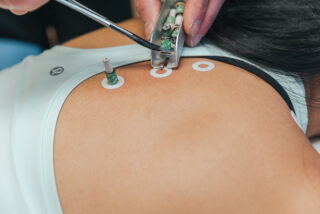
Traditional Chinese Medicine
Traditional Chinese Medicine (TCM) offers another treatment option for those struggling with insomnia. Acupuncture is one of the most well-known TCM treatments; research has shown that it can be effective in treating insomnia by promoting relaxation and improving sleep quality. Herbal medicine is another TCM modality that can be helpful in treating sleeplessness. Traditional Chinese herbs that have been used to treat insomnia include jujube seed, ziziphus seed, longan fruit, tianma root, ginseng root, and magnolia bark.
Cannabis
Cannabis is another treatment option that is gaining popularity for its ability to effectively treat insomnia. THC, the primary psychoactive compound in cannabis, has been shown to increase slow-wave sleep—the deepest stage of sleep—while CBD has been shown to reduce REM sleep density, which may lead to more restful sleep. For those who are interested in trying cannabis for their insomnia but are worried about the potential for addiction or abuse, CBD-only products may be a good option as they do not have any psychoactive effects.
Conclusion
If you’re one of the millions of people affected by insomnia, know that you’re not alone—and there are treatments out there that can help! Sleep hygiene practices like avoiding caffeine and screens before bed can make a big difference, and nutraceuticals like melatonin and 5-HTP can also be effective in treating sleeplessness. Traditional Chinese Medicine modalities like acupuncture and herbal medicine can also offer relief from insomnia; cannabis is another treatment option gaining popularity for its ability to improve sleep quality. Talk to your naturopathic doctor about which treatment option may be right for you!
Book an appointment today!
Are you feeling tired, moody, and bloated? You might be experiencing the symptoms of hormone imbalance. This is a common problem for women, especially mothers. But don’t worry, there are natural treatments that can help restore your hormones to balance. In this blog post, we will discuss what hormone imbalance is, its symptoms, and how to treat it naturally. Keep reading to learn more!
Estrogen Dominance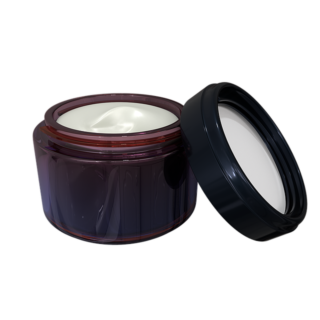
Estrogen dominance is a condition that can occur when there is an imbalance of estrogen and progesterone in the body. When estrogen levels are too high relative to progesterone levels, it can lead to a number of symptoms, including mood swings, bloating, fatigue, and irregular menstruation.
Estrogen dominance can be caused by a variety of factors, including stress, diet, and certain medications. If you are experiencing any of these symptoms, we can help to properly diagnose and treat the condition. Estrogen dominance is a common hormonal imbalance that affects many women, but with proper treatment, it can be effectively managed.
BHRT
Bioidentical hormone replacement therapy is a treatment for estrogen dominance that involves using hormones that are identical to the ones produced by the body. This type of therapy can be used to treat a variety of symptoms associated with estrogen dominance, such as hot flashes, night sweats, mood swings, and weight gain. Bioidentical hormone replacement therapy can also help to protect against osteoporosis and heart disease.
While traditional hormone replacement therapy uses synthetic hormones that are not identical to those produced by the body, bioidentical hormone replacement therapy uses hormones that are exact replicas of the ones naturally produced by the body. This makes bioidentical hormone replacement therapy a more natural and effective treatment for estrogen dominance.
PCOS
Polycystic ovary syndrome (PCOS) is a hormonal disorder that affects women of reproductive age. The four main features of PCOS are insulin resistance, high levels of testosterone, low levels of follicle-stimulating hormone (FSH), and high levels of luteinizing hormone (LH). Insulin resistance is the most common cause of PCOS, and it occurs when the body doesn’t use insulin effectively. This leads to higher than normal levels of Insulin in the body. High Insulin levels increase testosterone production, which can interfere with the development of follicles on the ovaries. As a result, ovulation may be irregular or may not occur at all.
FSH is responsible for stimulating the growth of follicles on the ovaries, and LH is responsible for triggering ovulation. When FSH and LH are out of balance, it can lead to PCOS.
Cortisol is a stress hormone that can also contribute to PCOS. It does this by increasing Insulin Levels and affecting how the body uses glucose. As a result, women with PCOS often have higher than normal levels of Cortisol in their bodies.
PCOS can cause a variety of symptoms, including weight gain, irregular menstruation, fertility problems, low sex drive, and mood swings. PCOS can also cause acne and excess hair growth. While there is no cure for PCOS, there are treatments that can help manage the symptoms.
PCOS is thought to be caused by a combination of genetic and environmental factors. A woman’s risk of developing PCOS increases if she has a family history of the condition. PCOS is also more common in women who are overweight or obese. If you think you may have PCOS, talk to your doctor about your symptoms.
Diet and exercise are two of the most important factors in managing PCOS. Both help to regulate hormone levels and improve insulin sensitivity. One of the best ways to get started is to eat a nutritious diet and to get at least 30 minutes of exercise every day.
Additionally, supplements like l-carnitine, inositol, and vitamin D can be helpful in managing PCOS symptoms. L-carnitine helps to boost energy levels and improve fertility, while inositol helps to regulate hormones and reduce inflammation.
Vitamin D is essential for fertility and has also been shown to improve insulin sensitivity. All of these nutrients are available in food sources or supplements. By making dietary and lifestyle changes, you can help to manage your PCOS symptoms naturally.
Chronic Stress
Estrogen, testosterone, and other hormones play a vital role in the human body. They are involved in regulating mood, energy levels, metabolism, and sexual function. However, these hormones can be easily disrupted by stress.
When the body is under stress, it releases a hormone called cortisol. cortisol helps the body to deal with short-term stressors by increasing heart rate and blood pressure. However, if cortisol levels remain high for long periods of time, it can interfere with the production of other hormones, including estrogen and testosterone. This can lead to a number of problems, such as fatigue, weight gain, and difficulty concentrating.
Additionally, stress can also disrupt the delicate balance of progesterone and estrogen, which can lead to irregular periods and hot flashes in women. Therefore, it is important to manage stress in order to maintain hormone balance.
Diet, exercise, meditation, sleep and adaptogens are all effective ways to manage stress naturally. Diet can help by reducing inflammation and providing the nutrients needed for the body to function optimally. Exercise releases endorphins, which have mood-boosting effects, and also helps to reduce levels of the stress hormone cortisol.
Meditation helps to focus and calm the mind, and research has shown that it can be as effective as medication for treating anxiety and depression. Sleep is essential for rest and recovery, and 7-8 hours per night is recommended for most adults.
Adaptogens are a unique class of herbs that help the body to adapt to stressors by modulating the stress response. When used regularly, they can help to prevent burnout and promote resilience. Managing stress naturally requires a holistic approach, but incorporating these simple strategies into your daily routine can make a big impact.
If you’re experiencing any of the symptoms we’ve talked about, it might be time to see a naturopathic doctor. NDs are experts in hormonal balance and have many natural and effective treatments at their disposal. Don’t suffer in silence – book a consultation today and start feeling like yourself again.
Do you feel like you’re always getting sick? Are you constantly battling colds and the flu? If so, you may need to boost your immunity. Luckily, there are a number of natural treatments that can help. In this blog post, we will discuss some of the best ways to improve your immune system naturally.
Vitamin D for immunity
Vitamin D is essential for a strong immune system. It helps the body to produce antibodies, which fight infection. Vitamin D can be found in fatty fish, eggs, and fortified milk. You can also get Vitamin D from exposure to sunlight.
Trouble keeping up with vitamin D supplements and worried about sun exposure? Not to worry, at my clinic we offer the option of a vitamin D injection. Under professional supervision, this is a safe and effective way to boost vitamin D levels quickly.
Vitamin C for immunity
Another important nutrient for immunity is Vitamin C. Vitamin C helps the body to create white blood cells, which fight infection. Vitamin C can be found in citrus fruits, tomatoes, bell peppers, and broccoli.
Intravenous vitamin C is a great way to get a high dose of Vitamin C. By bypassing digestion, IV vitamin C can boost levels quickly. Intravenous vitamin C can also increase blood concentrations at levels that directly kill pathogens and inhibit cancer growth.
Zinc for immunity
Zinc is another important mineral for immunity. It helps the body to create new cells and enzymes that fight infection. Zinc can be found in oysters, beef, pork, chicken, and beans.
Zinc can also be added to intravenous infusions for an added immune system boost.
Elderberry Syrup
If you’re looking for a kid friendly and great tasting way to boost your immunity, elderberry syrup is a great option. Elderberries are rich in Vitamin C, Vitamin A, and antioxidants. They have been shown to reduce inflammation and fight infection. You can find elderberry syrup at most health food stores.
Ginger for immunity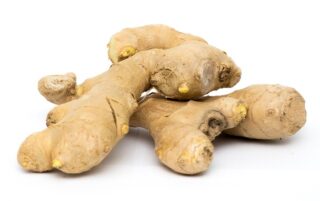
Ginger is another great option for boosting your immunity. Ginger is a natural anti-inflammatory and can help to reduce congestion. It can also help to soothe a sore throat. You can find ginger in the form of capsules, tea, or syrup.
Garlic for immunity
Garlic is another excellent food for boosting your immunity. Garlic is rich in Vitamin C, sulfur, and antioxidants. It has been shown to fight infection and reduce inflammation. You can add garlic to your food or take it in supplement form.
Selenium for immunity
Selenium is a trace mineral that is important for immunity. Selenium helps the body to produce antibodies, which fight infection. It can be found in Brazil nuts, tuna, shrimp, and eggs.
Selenium can also be added to an intravenous infusion for an added immune boost.
Vitamin A for immunity
Vitamin A is an important nutrient for immunity. Vitamin A helps the body to produce white blood cells, which fight infection. Vitamin A can be found in sweet potatoes, carrots, dark leafy greens, and squash.
Probiotics for immunity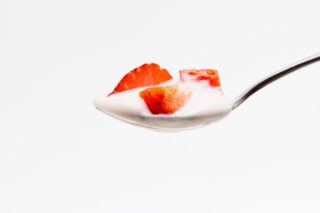
Probiotics are live bacteria that are good for your gut health. Probiotics help to keep the balance of good and bad bacteria in your gut. This can help to improve digestion and boost immunity. You can find probiotics in yogurt, kimchi, sauerkraut, and kombucha.Probiotic supplements are also available.
There you have it! These are just a few of the best ways to boost your immunity naturally. By including these foods and supplements in your diet, you can help to keep yourself healthy and avoid getting sick. In individuals requiring an extra boost, injection and intravenous treatments are available and effective. Do you have any other favourite natural immunity boosters? Share them with us in the comments


